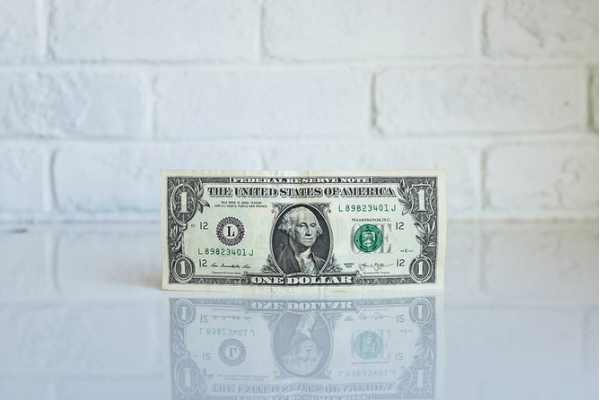Each year offers a fresh start and most of us are eager to get our lives on track. We start out with the best of intentions, but keeping that momentum is easier said than done. One way to combat that is to start setting financial goals for yourself along the way.
A lot of us aspire to get better control over our finances. Whether it’s saving more for retirement, paying off debt or building an emergency savings fund, everyone has something they would like to improve on. Much like other goals, this may be hard to achieve without a concrete plan or check-ins along the way.
For example, maybe you pick one overarching goal like “save more,” but your monthly goals or challenges could be something like only spending a certain amount on non-essential purchases. You can tailor these to your own lifestyle and budget, but the sentiment is the same.
Here are a few ideas on how you can start setting financial goals
Save $1 every day

You can replace this with whatever number you’re comfortable with. If you’ve had trouble saving in the past, something as small as $1 every day will add up. By the end of the month, you’ll have a nice $30 to add to your rainy day fund or emergency savings fund.
Keep Steve Burkholder’s advice in mind if you find yourself feeling down about the amount you’re able to save: “If you’re saving, you’re succeeding.”
Don’t spend any money on non-essentials
It may sound drastic, but try going a month without buying anything but the essentials. It may be hard at first, but chances are you’ll start appreciating what you already have. Plus, you’ll realize how little you actually need to be happy.
As Will Rogers said, “Too many people spend money they haven’t earned to buy things they don’t want to impress people they don’t like.”
Set aside money to give to charity every time you feel tempted to make an impulse purchase
Reframe your mindset by thinking more about giving to charity instead of buying for yourself. Every time you find yourself about to make an impulse purchase, consider whether you actually need the item.
If you do, it’s ok to buy it. If you don’t, set aside a few dollars to give to charity. At the end of the month, you’ll feel great about your decision to give rather than consume needlessly.
A wise IRS auditor once said, “The trick is to stop thinking of it as ‘your’ money.”
Every time you want to buy something, write it down and wait at least a full week before buying it
The power of gratitude can get you far in life, whether you have money or not. Try to be a more mindful consumer and appreciate what you have by creating a self-imposed time restriction on your purchases. Sometimes, you may find you didn’t need the item in the first place.
Trust Coco Chanel when she says “There are people who have money and people who are rich.”
All in all, reframing your mindset when it comes to making purchases and setting financial goals month after month is a powerful way to achieve success with your finances.
See Also: Money-Saving Hacks for Busy People